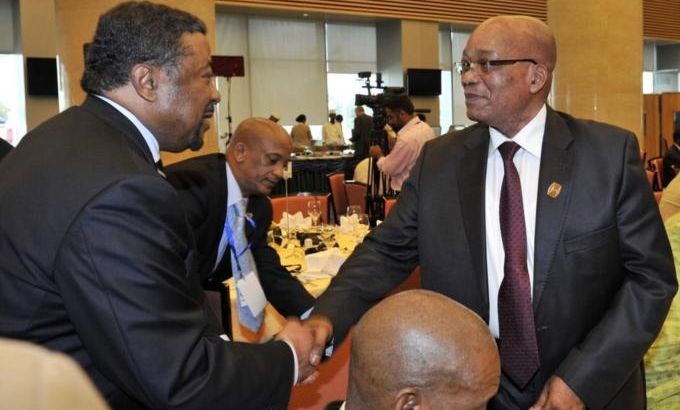AU ‘ready’ to send troops to quell DRC rebels
African Union discusses insecurity in the DRC and Mali, although power struggle threatens to overshadow proceedings.

The African Union is ready to send troops to the restive eastern Democratic Republic of Congo as part of a
peacekeeping force, AU Commission Chairman Jean Ping has said.
“The AU is prepared to contribute to the establishment of a regional force to put an end to the activities of armed groups,” Ping told African leaders at the opening of the pan-African bloc’s summit meeting in Ethiopia on Sunday.
DR Congo President Joseph Kabila was at the meeting as well as Paul Kagame of Rwanda, currently at odds over Kinshasa’s allegations Kigali is supporting a rebellion known as M23, in the mineral-rich eastern Kivu region.
Kabila’s government has accused high-ranking Rwandan officers of supporting a rebellion by soldiers who mutinied from DR Congo’s regular army.
The allegations echo the findings of a UN panel of experts who last month said Rwanda was supplying arms and fighters to the rebels.
Rwanda has denied involvement and in turn accuses Kinshasa of renewing co-operation with Rwandan Hutu rebels, who have been based in eastern DR Congo since the 1994 Rwandan genocide.
Sudanese President Omar al-Bashir and South Sudanese President Salva Kiir embraced each other as leaders filed into the summit room, following their first face-to-face talks late Saturday since border clashes in April and March.
Bloc leadership
While security issues are expected to dominate the summit, discussions are also expected to revolve around the bloc’s leadership.
South Africa’s Nkosazana Dlamini-Zuma is challenging the sitting chairman of the commission, Gabon’s Jean Ping, after neither won the required two-thirds of the vote at the last summit six months ago, leaving Ping in the post.
Both candidates have issued strongly worded public statements ahead of Sunday’s vote.
Earlier this week, Ping dismissed South African media reports that he was quitting to allow Dlamini-Zuma to stand unopposed, prompting the Southern African Development Community to accuse him of abusing AU resources in his election bid.
Analysts say that by unwritten tradition, continental powerhouses do not run for the post – leaving smaller nations to take the job – and that South Africa’s decision to override this rule has sparked bad feeling.
If no chair is selected this time around, Ping – who has held the post since 2008 – could legally be asked to stay on as leader until the next summit in January 2013.
The meeting is being held in the Ethiopian capital after Malawi’s new president Joyce Banda refused to host Bashir, wanted by the International Criminal Court on war crimes and genocide charges.